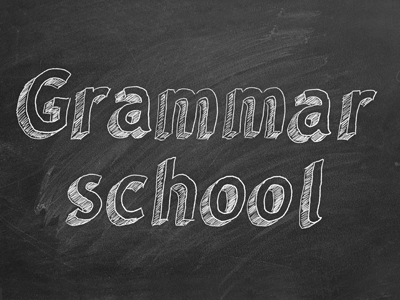11-Plus Subject Requirements - Grammar School Entrance Exams

Understanding Grammar Schools
Grammar schools have been a subject of controversy due to their selective admissions process, which allows them to choose their students based on perceived intelligence. This often raises questions about what defines the "brightest" students. Generally, in their final year of primary school, children take a test, and those with the best results secure admission, while others follow the regular school system.
In 2018, there were 163 grammar schools in England, out of more than 3,000 secondary schools. The competition for admission to these schools is fierce, so it's essential to understand what the grammar school test entails to give your child the best possible chance.
Selective Schools
Grammar schools are often referred to as selective schools because they have the privilege of selecting students based on their abilities. These selective tests focus on assessing intelligence rather than knowledge. Unfortunately, some parents hire private tutors to coach their children for these entrance exams, potentially creating inequalities.
While this situation may not be ideal, it's crucial to empower your child with knowledge about these tests and coach them to tackle the questions they'll encounter.
The Eleven Plus Exam
The standard test for admission to grammar schools is the eleven plus exam. Unlike most other exams, it takes place at the beginning of the school year for Year 6 students. There's no "pass" or "fail." Instead, children are ranked based on their performance, with the top scorers earning admission. For example, if a grammar school has 20 available spots, the top 20 scores qualify, regardless of the percentage achieved.
There's no standardized "11+ test." The exam varies across regions but generally consists of two or more sections, including maths, English, verbal reasoning, and non-verbal reasoning.
Assessing Intelligence
It's essential to note that these selection tests primarily evaluate a child's intelligence rather than their accumulated knowledge. The non-verbal reasoning section resembles IQ tests, using pictures to assess skills like spatial awareness and pattern recognition. Verbal reasoning is similar, but with questions posed in words, testing logic and reasoning.
Maths and English are the only subjects taught in schools that are part of the 11+ exam, not to check academic knowledge, but to assess a child's ability to learn. A strong grasp of English is crucial for comprehending verbal reasoning questions, while mathematical skills can significantly help in both the non-verbal and verbal reasoning sections.
The History of Grammar Schools

The history of grammar schools dates back to the 16th century, with the oldest, Bridgnorth Grammar School, still in existence as an academy. However, these original grammar schools share little in common with modern ones.
Modern grammar schools emerged with the 1944 Education Act, implemented during Churchill's war ministry. This act divided children into two distinct classes, attending different types of schools. Grammar schools were designed for the brightest students, emphasizing academic studies for university preparation, while less fortunate students attended secondary moderns, focusing on vocational training.
Post-war, the Labour government opposed this division, leading to the gradual phasing out of grammar schools. Comprehensive schools, catering to children from all backgrounds, started replacing the two-tiered system. Nevertheless, grammar schools continue to exist, primarily in wealthier regions of the country.
The School Standards and Framework Act of 1998 banned the creation of new selective schools. Still, old selective grammar schools persist. If you live in an area with a grammar school, attending can be advantageous, as these schools tend to outperform comprehensives in exam results due to their selective nature.
The Future for Grammar Schools
The future of grammar schools remains uncertain. In 2018, a Durham University report recommended the removal of grammar schools from the state system, citing detrimental effects on disadvantaged children and social cohesion due to early-age ability-based selection.
Despite these concerns, the current government has no immediate plans to phase out grammar schools, ensuring their continued presence in the education system. Therefore, those who have access to grammar schools in their areas may benefit from taking advantage of this opportunity.
LEARN ABOUT THE BENEFITS OF LEARNING THROUGH QUIZZES
So, now you know about the grammar school entrance exam, but there is a good deal more to learn about education. You'll find answers to your education questions in our Knowledge Bank. We have scores of articles packed full of useful information for parents



